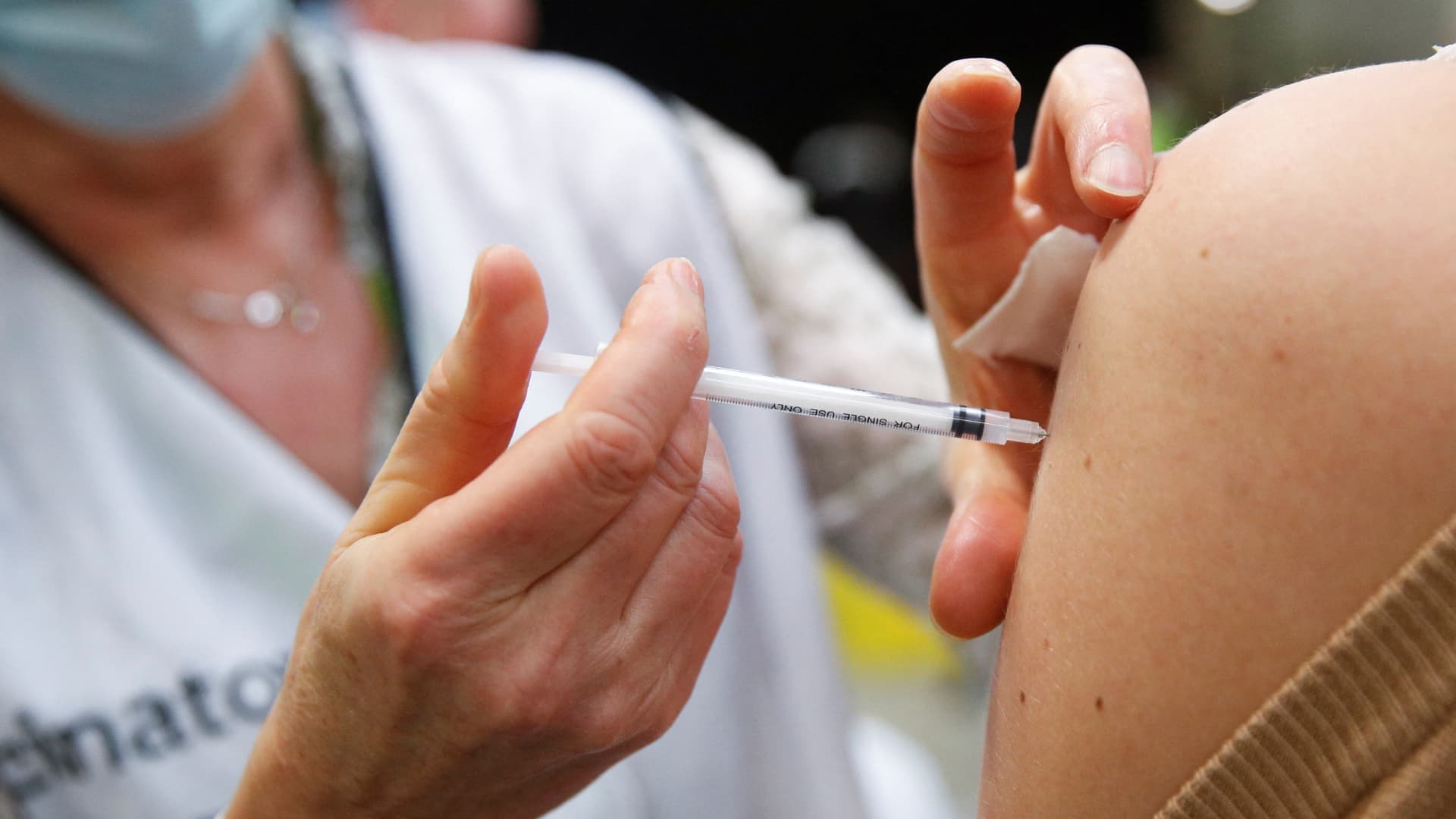
A woman receives a booster dose of the Moderna coronavirus disease (COVID-19) vaccine at a vaccination centre in Antwerp, Belgium, February 1, 2022.
Johanna Geron | Reuters
Patients are now enrolling in an early stage clinical trial to test a universal flu vaccine based on messenger RNA technology, the National Institutes of Health announced Monday.
Scientists hope the vaccine will protect against a wide variety of flu strains and provide long-term immunity so people do not have to receive a shot every year.
Messenger RNA, or mRNA, is the technology behind Moderna‘s and Pfizer‘s widely used Covid vaccines. NIH played a crucial role in developing the mRNA platform used by Moderna.
“A universal flu vaccine could serve as an important line of defense against the spread of a future flu pandemic,” Dr. Hugh Auchincloss, acting director of National Institute of Allergy and Infectious Diseases, said in a statement Monday.
The universal flu vaccine trial will enroll up to 50 healthy people ages 18 through 49 to test whether the experimental shot is safe and produces an immune response, according to NIH.
The study will also include participants who receive a quadrivalent flu vaccine, which protects against four strains of the virus, to compare the experimental universal shot to those currently on the market.
The universal shot was developed by researchers at the National Institute of Allergy and Infectious Diseases. The clinical trial is enrolling volunteers at Duke University in Durham, North Carolina.
The current generation of flu vaccines provide important protection against hospitalization but the effectiveness of the shots can vary widely from year to year.
Scientists right now have to predict months in advance which flu strains will dominate so vaccine manufacturers have time to produce the shots ahead of the respiratory virus season.
The dominant flu strains can change between the time when experts select the strains and the manufacturers roll the shots out. In some seasons, the shots are not matched well to the circulating strains and are less effective as a consequence.
Flu vaccines reduce the risk of illness by 40% to 60% when they are well matched against the circulating strains, according to the Centers for Disease Control and Prevention. But in some years the the vaccines’ effectiveness has been as low as 19% because the shot was not well matched.
Flu killed between 12,000 and 52,000 people annually in the U.S. from 2010 to 2020 depending the circulating strains and how well matched the shots were, according to the CDC.







